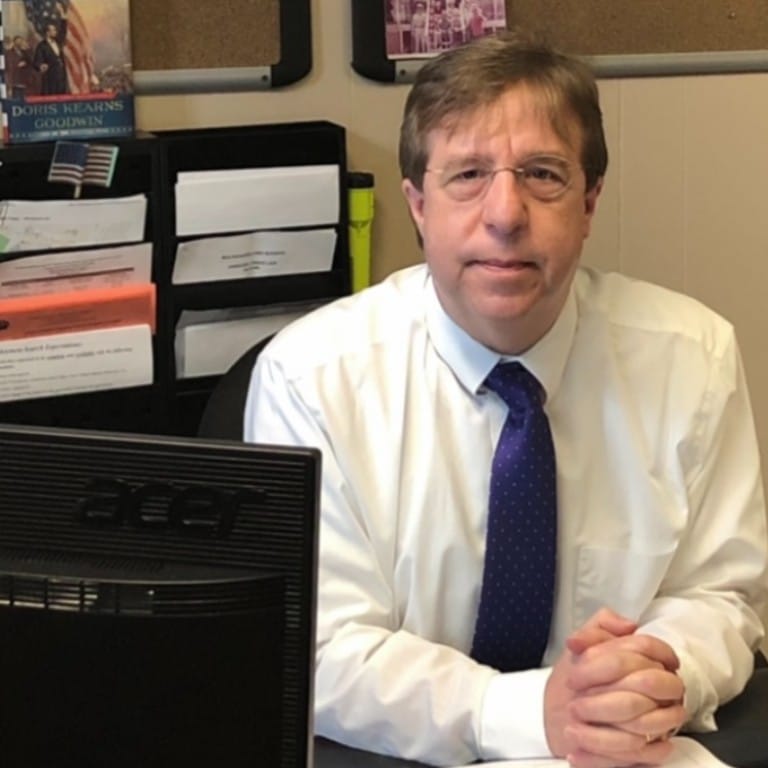Local welfare budget ‘sticker shock’ part of post-pandemic budget reset
Municipalities throughout the state have been experiencing local welfare budget sticker shock, with many overspending their budgets months before the end of the fiscal year. Todd Marsh, president of the New Hampshire Local Welfare Administrators Association, believes the sharp increase is an anomaly


CONCORD, NH – Municipalities throughout the state have been experiencing local welfare budget sticker shock, with many overspending their budgets months before the end of the fiscal year. Todd Marsh, president of the New Hampshire Local Welfare Administrators Association, believes the sharp increase is an anomaly and part of a post-pandemic budget reset that should moderate next fiscal year.
“The increase is due to three years of rising inflationary costs, including housing costs, which were largely offset by federal pandemic federal funds, until funding ended,” said Marsh. “The post-federal funding unknowns fostered a budget development challenge, as using trending recent years expended amounts were no longer a reliable budgeting guide.”
Marsh cites the New Hampshire 2023 Residential Rental Cost Survey Report, indicating a 0.6% statewide vacancy rate for two-bedroom apartments, and median gross rent for a 2-bedroom unit in 2023 increasing to #1,764, which reflect a 36% increase from 2018-2023. Also, overall increased life-living inflationary costs and continued mental health difficulties, including substance use disorder as multifaceted challenges.
Marsh explained how higher municipal welfare costs caught many municipalities by surprise, stating, “Instead of experiencing a moderate and steady increase over the course of three years; allowing for methodical budget adjustments, municipalities went from warm budgetary waters to boiling very quickly.”
According to the 2022 New Hampshire Municipal Association’s “Art of Local Welfare Guide,” the municipality’s statutory obligation to provide local welfare assistance does not end because the welfare budget has been exhausted. Thus, it is important for the welfare administrator to update the governing body when it appears that the budget as appropriated will not be sufficient to meet the caseload of eligible assisted persons.
The governing body must then decide to transfer money into the welfare budget under RSA 32:10; request permission from the DRA to over-expend the budget under RSA 32:11; or hold a special town meeting to appropriate the funds needed under RSA 31:5.
The guide adds, “It is prudent practice to prepare welfare budgets based on recent trending amounts and with sufficient funds available to reasonably accommodate unpredictable circumstances. The approved budget should not dictate decisions to assist or not to assist.”
Marsh believes current and future budget planning for municipal local welfare assistance will be more reliable.
“This new year should be a year of budgeting reset, with improved general assistance predictions based on more reliable recent trending expended amounts,” said Marsh.
Marsh is confident that continued collaborative and eclectic efforts will allow New Hampshire to lead the way toward maximum self-sufficiency for people with unique needs and cost-effectiveness for taxpayers.
“We need a multi-pronged approach to multifaceted challenges,” said Marsh. “As an observer and participant of solution finding, I am witnessing increasing buy-in from a broader spectrum of thought, including political affiliations, for a more holistic approach.”
Marsh cites the Governor’s Council on Housing Stability Strategic Plan, which was charged in 2021 to develop and implement a plan to create maximum housing stability for all citizens of the State of New Hampshire.
“There is an agreed need for continued innovative solution finding for lower-income housing availability, case managed supportive permanent housing, medical discharge respite for the unhoused, and substance disorder treatment,” said Marsh. “Also, there is increasing acknowledged value for an eclectic emergency housing system that meets unique needs from seasonal very low barrier overnight survival sheltering to more holistic programmatic approaches.”
Proper planning and focus is believed necessary to minimize municipal local welfare costs.
“Effectiveness is in the details,“ said Marsh. “Planned and targeted solution finding is needed to do what is right for our most vulnerable citizens, which can also be cost-effective for taxpayers.” Marsh added, “Humane and cost-effective approaches are not mutually exclusive.”
The New Hampshire Local Welfare Administrators Association (NHLWAA) is a professional non-profit organization that educates and supports its municipal members to foster compliant, humanitarian, and fiscally responsible assistance practices when assisting residents with NH RSA 165:1 statutorily obligated basic needs.
Todd Marsh has been president of the association since 2021, director of Rochester City Welfare for more than 15 years, and serves on the Governor’s Council on Housing Stability task force. He is a former director of the Homeless Center for Strafford County in Rochester and served on several elected and appointed public service positions, including the Somersworth City Council, School Board, Ethics Commission, and Tri-City Mayor’s Task Force on Homelessness.
Marsh, along with the association’s board of directors, has led an effort to improve practice and culture change in municipal local welfare, which emphasizes increased case management, thoughtful professionalism, collaboration with other helping providers, and being a valuable informational resource to government policymakers.
“Municipal Local Welfare is a valuable social service voice of insight within city and town halls and often a bridge of communication between our helping provider friends and government, as we speak both languages,” said Marsh. “We strive to continuously improve humane centered results and cost-effective outcomes.”
As president of the Municipal Local Welfare Association, Marsh’s collaborative and continuous improvement approach message is clear: “It is only by working together, we can achieve better.”





